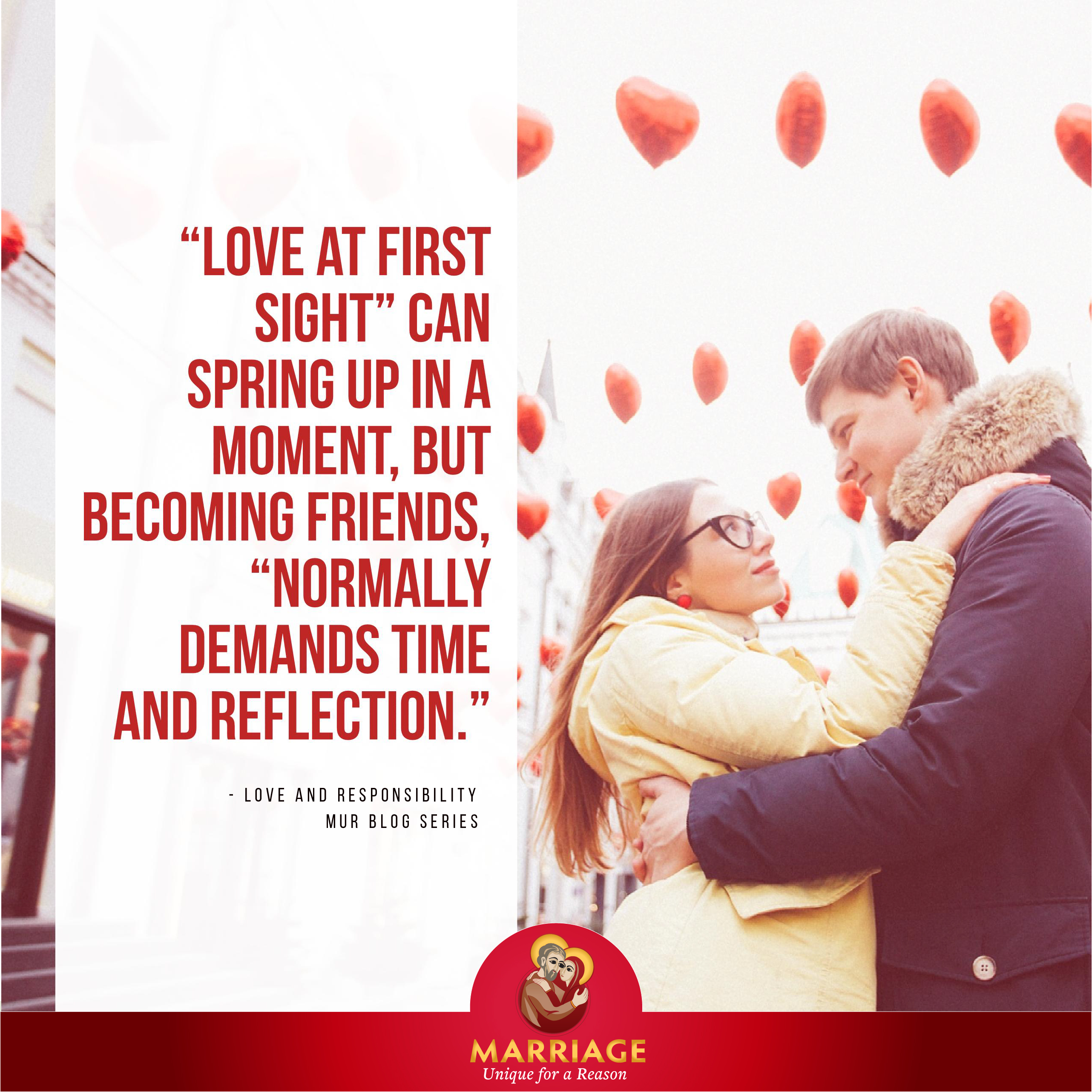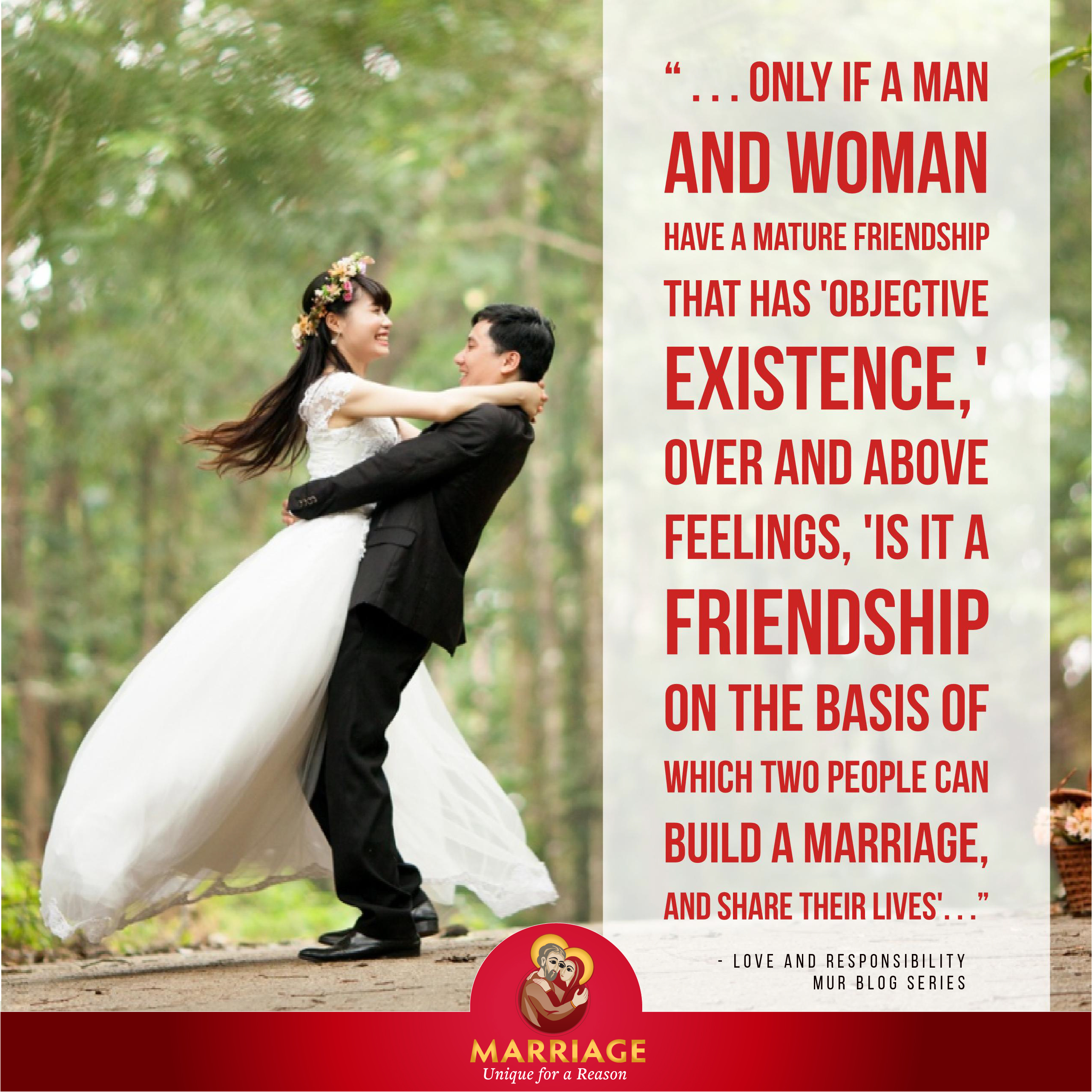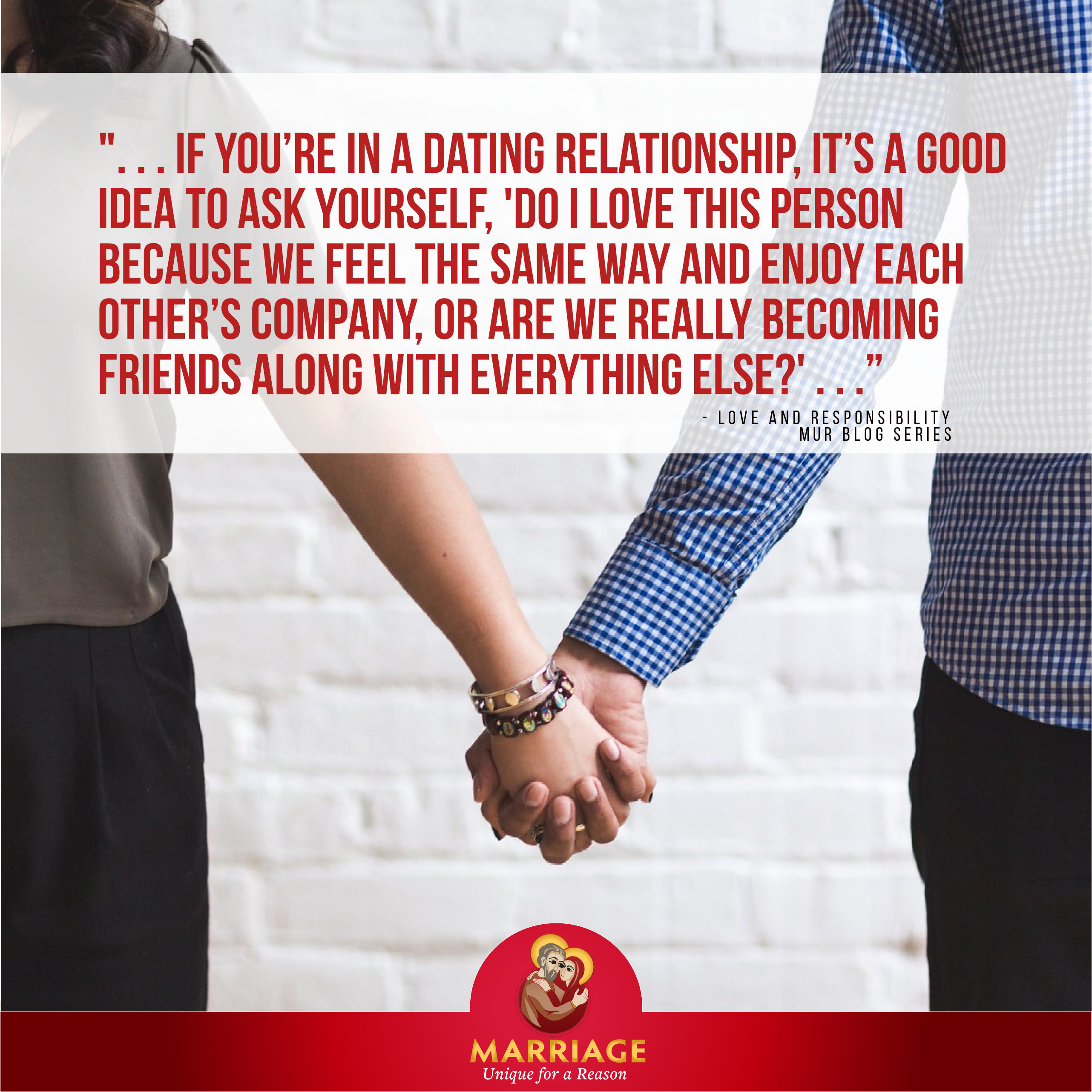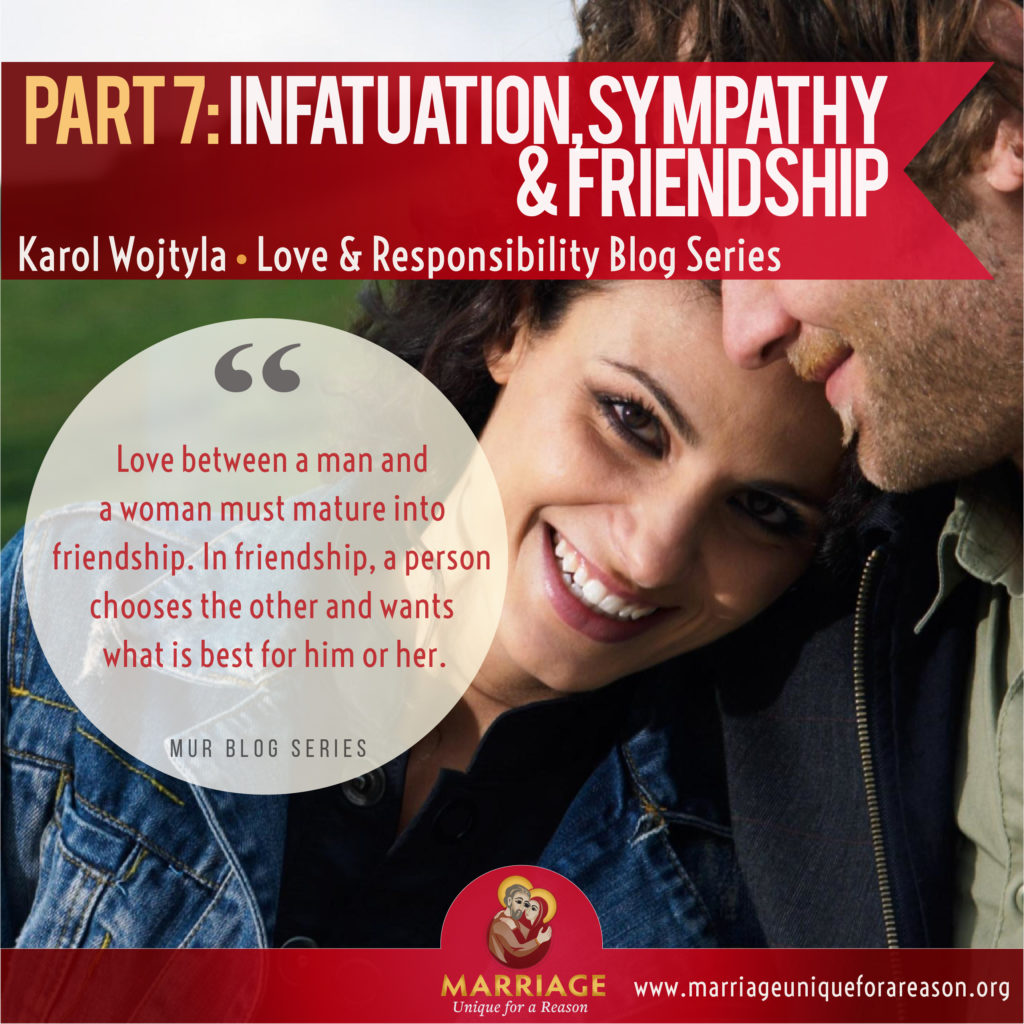 NOTE: While we normally use “sympathy” to describe sharing in someone else’s suffering, Karol Wojtyla uses the word according to its root meaning – feeling the same as another person – to describe the emotional feeling of love that couples experience as they date and approach marriage. I will also use the term “infatuation” for the same phenomenon.
NOTE: While we normally use “sympathy” to describe sharing in someone else’s suffering, Karol Wojtyla uses the word according to its root meaning – feeling the same as another person – to describe the emotional feeling of love that couples experience as they date and approach marriage. I will also use the term “infatuation” for the same phenomenon.
Love as Desire Needs to Becomes Love as Goodwill
In the next section of Love and Responsibility, Wojtyla examines how sympathy matures into friendship. This process is like the earlier one (where love as desire has to mature to love as goodwill). In both cases, emotions come first, and the will follows.
Wojtyla writes that sympathy— infatuation, the “high” that a man and a woman experience when they discover that they like each other romantically—“takes possession of one’s feelings and will, irrespective of the objective worth of the person for whom it is felt.”[1] Studies have shown that the first stage of romance,  being “in love,” releases lots of happy chemicals in the brain—it’s even like being on drugs! Infatuation makes a man and a woman feel close to each other and aware of their mutual attraction. It lays a foundation and “creates conditions for friendship.”[2]
being “in love,” releases lots of happy chemicals in the brain—it’s even like being on drugs! Infatuation makes a man and a woman feel close to each other and aware of their mutual attraction. It lays a foundation and “creates conditions for friendship.”[2]
Love between a man and a woman must mature into friendship. In friendship, a person chooses the other and wants what is best for him or her. The choice to be friends with someone must be based on who he or she really is, so knowledge and time are crucial. The emotion of sympathy—liking each other—must be supplemented “with an objective knowledge and belief in the value of that person.”[3] “Love at first sight” can spring up in a moment, but becoming friends, “normally demands time and reflection.”[4]
When a priest meeting with an engaged couple asks, “How long have you been dating?” it isn’t just out of curiosity – he’s trying to discern something about the depth of their friendship. It is important information for him to know to accompany them in their discernment of marriage. As Wojtyla puts it, only if a man and woman have a mature friendship that has “objective existence,” over and above feelings, “is it a friendship on the basis of which two people can build a marriage, and share their lives.”[5]
Marriage’s Strong Foundation: Friendship
Infatuation is not enough to keep a couple together over time. It will break down, and, “As soon as sympathy breaks down [the two people] usually feel that love has also come to an end.”[6] A marriage that takes place before a strong foundation is present is a danger; the  high divorce rate attests to it. Unless a man and a woman know each other’s characters and have formed a real friendship, if they marry, their marriage will not be on a strong foundation. Their marriage will not survive unless the spouses mature and “grow into” friendship after the wedding day.
high divorce rate attests to it. Unless a man and a woman know each other’s characters and have formed a real friendship, if they marry, their marriage will not be on a strong foundation. Their marriage will not survive unless the spouses mature and “grow into” friendship after the wedding day.
Comradeship in Marriage:
At the end of this section, Wojtyla mentions “comradeship,” by which he means that the man and woman are co-workers, partners in a project that is bigger than them. Being co-workers, “rests on such objective  foundations as joint work, common goals, shared concerns, etc.”[7] If sympathy/ affection and comradeship/ partnership are present, “the combination is a very promising one.”[8] When two people work together on a project, a certain unity develops around that shared task. For example, “We made a picnic table this weekend” or “We cooked a meal for a soup kitchen last night.” There are simple, practical ways that people need one another and benefit from doing things with other people.[9] Wojtyla says that people who are good at working with others are also well-suited for marriage and family life.
foundations as joint work, common goals, shared concerns, etc.”[7] If sympathy/ affection and comradeship/ partnership are present, “the combination is a very promising one.”[8] When two people work together on a project, a certain unity develops around that shared task. For example, “We made a picnic table this weekend” or “We cooked a meal for a soup kitchen last night.” There are simple, practical ways that people need one another and benefit from doing things with other people.[9] Wojtyla says that people who are good at working with others are also well-suited for marriage and family life.
In conclusion, if you’re in a dating relationship, it’s a good idea to ask yourself, “Do I love this person because we feel the same way and enjoy each other’s company, or are we really becoming friends along with everything else?”
[1] Wojtyla, Karol. Love and Responsibility (San Francisco: Ignatius Press, 1993), p. 90.
[2] Ibid, p. 91.
[3] Ibid, p. 92.
[4] Ibid, p. 92. The philosopher Aristotle wrote in Nicomachean Ethics that while the desire to be friends may happen immediately, friendship itself does not.
[5] Ibid, p. 94.
[6] Ibid, p. 90.
[7] Ibid, p. 94.
[8] Ibid, p. 94.
[9] Wendell Berry writes about how men and women used to objectively need one another more in the past (to raise the barn, to harvest the fields, to teach the children all that they needed to know, etc.), and this led to stronger bonds between spouses in marriage and among the community at large.

Leave a Reply